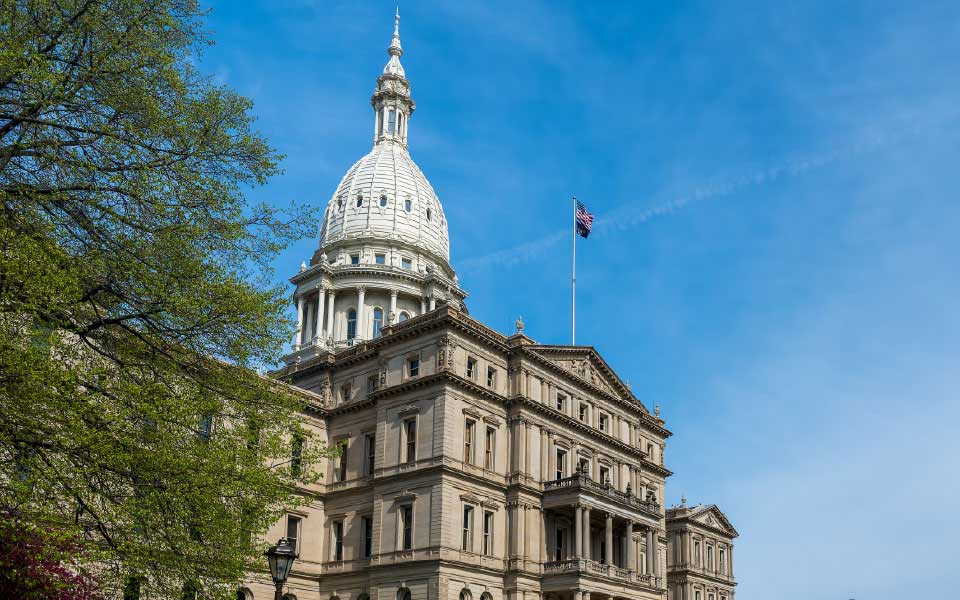Last year, the Washington State Supreme Court issued its decision in the case of Antio, LLC v. Wash. State Dep’t of Revenue, Slip Op. No. 102223-9, October 24, 2024. That decision was expected to have a substantial impact on the state’s business and occupation (B&O) tax and the liabilities various business entities incur from it. The case involved 16 related limited liability companies (LLCs) that generated all of their income from investments and attempted to deduct all “amounts derived from investments” resulting in zero B&O tax. Washington state law provides for a deduction of investment income for B&O tax purposes.
The court ultimately disagreed with Antio’s position. See our article from March 12, 2025, Washington State Business & Occupation Tax Exemption on Investment Income, where we discussed the impact of the Antio decision on business taxpayers with substantial investment income sourced to Washington. It was determined that while the state law did provide for a deduction for investment income for B&O tax purposes, this law was intended by the state only to mean income from the “incidental” investments of “surplus funds.” However, the Antio decision left open the question as to what should be considered “incidental” for purposes of the deduction, and it was recommended that taxpayers either not deduct any of their investment income in computing the B&O tax or seek out a private letter ruling.
On May 20, 2025, the Washington state legislature passed and Gov. Ferguson enacted HB 2081 which defines what is considered “incidental” investment income as well as other terminology concerning types of income eligible for the deduction and the various entities that can take advantage of it. For any entity that may have been out of compliance and improperly deducting any of its investment income, the state has offered a voluntary disclosure program.
Determining “Incidental” Under the Law
HB 2081 provides that the B&O tax deduction for investment income against the tax base applies only to amounts “incidental to the main purpose of the person’s business” and defines “incidental” income from investments as “less than 5% of the person’s total worldwide gross income of the business annually.” This includes amounts derived from dividends or distributions as well as interest received from loans between parent and subsidiary entities. The new law further provides that for nonprofit organizations, collective and family investment vehicles, or retirement accounts, any investment income received by these types of entities is deductible regardless of whether it was considered incidental income to the business. However, collective investment vehicles may not deduct distributions from collective investment vehicles to non-collective investment vehicles, wages paid for services to a collective investment vehicle or its investors, non-investment income of a collective investment vehicle, and funds received from factoring (proceeds received by the sale of accounts receivable at a discount from one company to another).
New Definitions Associated with the Law
Effective Jan. 1, 2026, HB 2081 also defines some of the terminology associated with the B&O tax law. Most importantly, the law defines “investments” as “securities, trading account assets, federal funds, options, futures contracts, forward contracts, notional principal contracts, equities, foreign currency transactions, fixed income instruments, derivative instruments, and commodities.” As the law also indicates, it applies to the incidental income of family investment vehicles and collective investment vehicles, as well as retirement vehicles for purposes of the B&O tax, requiring definitions of these types of entities, as well. The new law defines family investment vehicles as an estate, inter vivos or testamentary trust, a 529 college savings plan, or a Coverdell savings account. Collective investment vehicles are defined as entities that derive at least 90% of their annual income from investments, with the entity holding title to the investments for the benefit of its investors, managing the investments, and accepting unrelated individuals as investors. HB 2081 also provides that collective investment vehicles can be structured as partnerships, limited liability companies, corporations, trusts, or other forms of a mutual fund, collective fund, or similar investment vehicles. The law defines retirement accounts as any qualified plan established under sections 401 through 409 of the Internal Revenue Code, which includes the common 401(k) and 403(b) plans in which many wage earners participate.
Due to uncertainties in the law before the Antio decision and the enactment of HB 2081, many business entities may have improperly deducted what they believed could deducted as investment income for purposes of the B&O tax and now may be facing a substantial amount of exposure. Such businesses may wish to take advantage of the state’s voluntary disclosure program designed to rectify this issue, limiting the look-back and avoiding potential underpayment penalties in the event of an audit.
Voluntary Disclosure Program
Because of the previously unclear definition of “investment income,” “incidental” or “surplus funds,” and the fact that many business entities may have greater than 5% of their revenues from investment earnings that are not a part of their core operations, the state began offering a special Voluntary Disclosure Program beginning on July 1, 2025. It is intended for companies that may have improperly deducted investment income for B&O tax purposes. The program is administered in two phases, with phase 1 running from July 1, 2025, through April 30, 2026, and phase two running from July 1, 2026, through Apr. 30, 2027. Any business entities with unreported taxable investment income that haven’t already been contacted by the state, as well as their affiliates, qualify for the program, with a lookback limited to the prior four years plus the current year. The program waives penalties for underpayment of taxes, not being registered for the tax, and late return payments, as well as interest on the late paid taxes.
Applications must be submitted online and may be done anonymously, though the business identity must be disclosed within 15 calendar days of the application date. Once approved, the Department of Revenue will send a formal agreement to the business which must be signed and returned within 30 calendar days of the original application date. Failing to return the application on time could result in tax being assessed for the current year plus a lookback of seven years, penalties of up to 39% of the tax owed and interest. A number of documents and information are required with the application, which may result in an application being denied if they are not all attached to the online forms.
Businesses should consider applying sooner rather than later, as they can expect to wait a substantial period of time to have their applications processed.
If your business has substantial amounts of unreported investment income for Washington B&O purposes and you would like to discuss your ability to utilize the amnesty program to resolve your taxes, please contact a CBIZ SALT team member.
© Copyright CBIZ, Inc. All rights reserved. Use of the material contained herein without the express written consent of the firms is prohibited by law. This publication is distributed with the understanding that CBIZ is not rendering legal, accounting or other professional advice. The reader is advised to contact a tax professional prior to taking any action based upon this information. CBIZ assumes no liability whatsoever in connection with the use of this information and assumes no obligation to inform the reader of any changes in tax laws or other factors that could affect the information contained herein. Material contained in this publication is informational and promotional in nature and not intended to be specific financial, tax or consulting advice. Readers are advised to seek professional consultation regarding circumstances affecting their organization.
“CBIZ” is the brand name under which CBIZ CPAs P.C. and CBIZ, Inc. and its subsidiaries, including CBIZ Advisors, LLC, provide professional services. CBIZ CPAs P.C. and CBIZ, Inc. (and its subsidiaries) practice as an alternative practice structure in accordance with the AICPA Code of Professional Conduct and applicable law, regulations, and professional standards. CBIZ CPAs P.C. is a licensed independent CPA firm that provides attest services to its clients. CBIZ, Inc. and its subsidiary entities provide tax, advisory, and consulting services to their clients. CBIZ, Inc. and its subsidiary entities are not licensed CPA firms and, therefore, cannot provide attest services.















